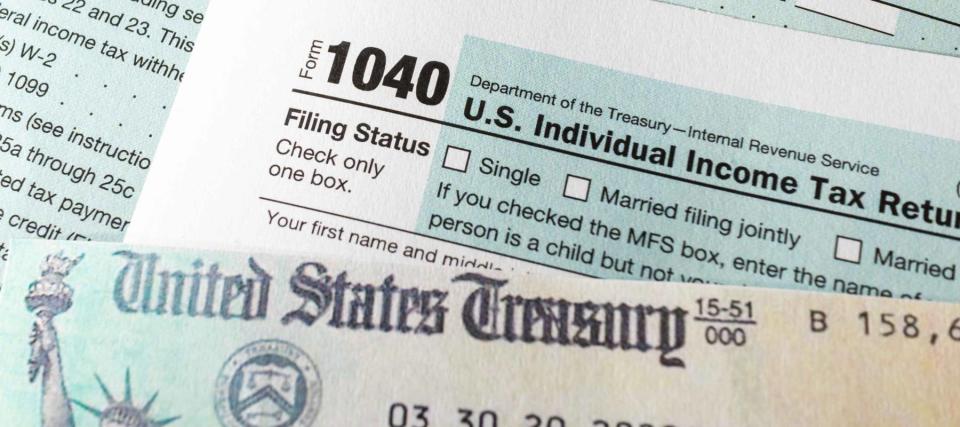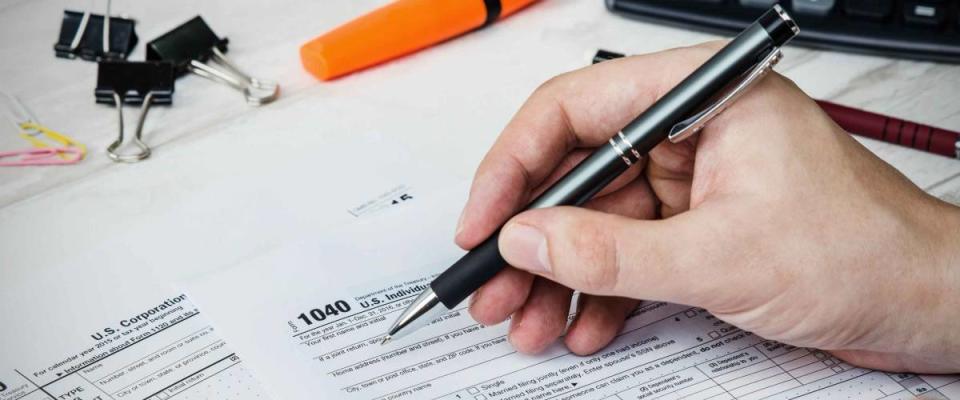A bonus stimulus check may be on the way if you filed your taxes on time

You know how good it feels when you receive a tax refund? It might feel even better this year, because you might be rewarded with extra money if you got your taxes in on time.
In fact, you might happily find a check from the IRS in your mailbox — even if you're not owed a refund.
The tax agency just sent hundreds of thousands of new stimulus checks to Americans based on the information they provided when they filed their tax returns. You might be in that group if you met the May 17 tax deadline.
Brand-new stimulus checks and 'plus-ups'

The IRS says it has distributed another 1.8 million direct payments under the COVID-19 rescue package that Congress passed and President Joe Biden signed in March. The latest checks had official payment dates of May 26, and roughly half of them — more than 900,000 — stem from tax returns the recipients recently filed.
Those new payments fall into two categories.
Some are going to people who previously didn't have up-to-date personal or financial information on file with the IRS. If the tax agency didn’t know where or how to send you a stimulus check, the payment would have been delayed.
But a completed tax return has now filled in the gaps and allowed the IRS to provide your long-awaited relief.
You could potentially be in line for a full $1,400 check from the third round of COVID payments, and if you're also due a tax refund — which have averaged more than $2,900 this year — you might be receiving a total of over $4,300.
The second category of tax-related stimulus checks are what the IRS calls "plus-up" payments. They're bonus money going to people who got shrunken stimulus checks based on their 2019 taxes, but whose recently filed 2020 returns show their income dropped significantly last year amid the pandemic.
If that describes your situation, you may now qualify for additional stimulus money and will receive a plus-up. The IRS says $1.6 billion in plus-ups have been disbursed in the past two weeks.
You don't usually file taxes? You could be missing out on money
You can receive a complete $1,400 stimulus check only if the IRS has a tax return showing adjusted gross income (total income minus some deductions) of $75,000 or less for individual taxpayers or no more than $150,000 for couples filing jointly.
If you don’t normally file tax returns and haven’t yet received any stimulus check from the last round, the IRS urges you to submit a 2020 return. You could receive not only a relief payment but also other benefits, including the upcoming monthly checks to parents under the expanded child tax credit.
The tax agency said in a news release on Wednesday that it will continue sending out stimulus money in weekly batches. It's now sending the cash exclusively by mail, in the form of debit cards and paper checks.
Since March 12, the tax agency has distributed almost almost 167 million direct deposits, checks and debit cards, with a value of approximately $391 billion.
If you're not getting a stimulus check this time

Not everyone is in a position to get an extra dollop of stimulus money from the government. If you’re not entitled to a bonus check, you have a number of ways to give yourself a financial boost.
Refinance your mortgage. If you’re a homeowner and haven't refinanced during the past year of ultra-low interest rates, you could be missing out on some game-changing savings. The mortgage data and technology provider Black Knight said Thursday that 14.1 million homeowners still have an opportunity to save an average $287 a month by refinancing.
Score a better deal on insurance. While you’re reducing the cost of homeownership, look into what you’re paying for homeowners insurance. A little comparison shopping could save you hundreds of dollars the next time you have to renew your coverage. The same strategy also could help you find a better deal on car insurance.
Diminish your debt. Credit cards may have been a life-saver during the pandemic, but their high interest costs could gum up your finances for years. Rolling your balances into a lower-interest debt consolidation loan can help you pay off your debts more quickly and affordably.
Get serious about saving. In budget-stretching times like these, any needless spending you’re doing needs to be axed. Cancel monthly subscriptions you're not using, resist the urge to have your meals delivered, and go to the grocery store with a list you can stick to. When you shop online, try your luck with a free browser add-on that automatically hunts for better prices and coupons.
Invest — a little at a time. You don't need a check from the IRS to start investing in today’s red-hot stock market. A wildly popular app allows you to grow a diversified portfolio using nothing more than "spare change" from your everyday spending
